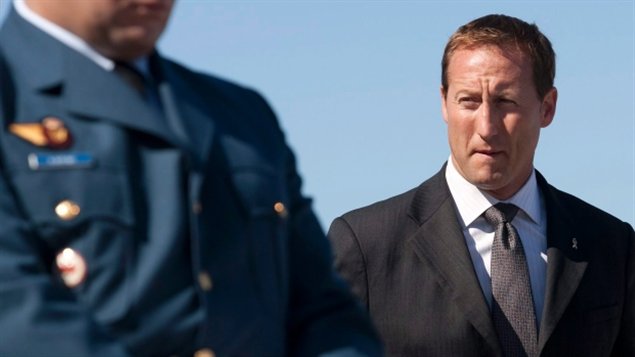The current Canadian government has secretly ordered the military to share information with allies even if there is a serious risk it could lead to torture. A newly classified memo says the Defence Department was developing a directive from the minister to put the policy into effect.
The November 2011 memo reveals Defence was slated to become the fifth federal agency to apply the government’s instruction to exchange information with a foreign agency even when doing so may give rise to a “substantial risk” of torture. The other agencies were the national police called the RCMP, the Canada Border Services Agency, the Canadian Security Intelligence Service and Communications Security Establishment Canada, which is the electronic eavesdropping agency.
Policy ‘morally repugnant’
“First and foremost, this is a policy that violates Canada’s obligations under international law,” says Alex Neve, secretary-general of Amnesty International Canada. “It’s very clear under international law: torture is banned and prohibited in all circumstances. Nothing excuses it. And that includes when you are not the one doing the direct torture but are in some way contributing or causing that torture.”
Beyond its obligations under international law and its commitments to the United Nations, Neve says Canada has a moral obligation. “This is torture. This is something that is morally repugnant. It’s something that I think Canadians would want to be sure that our government is taking a firm stand against in all ways, at all times…
“Instead…we’re seeing that in agency after agency the door is being left open for Canada to be part of the problem, rather than part of the solution,” says Neve.

Arar case an example
It is fitting that the memo outlining government policy was obtained by the Canadian Press ten years after the start of the inquiry into the Maher Arar case, says Neve. Arar, a Syrian-born Canadian, was deported to Syria by U.S. authorities where he underwent torture. The inquiry found that faulty information the RCMP passed to American officials very likely led to Arar’s traumatic detention. The Canadian government eventually apologized and awarded Arar a settlement of $10 million.
The head of the commission, Justice Dennis O’Connor recommended at the time that information never be provided to a foreign country where there is a credible risk it will cause or contribute to the use of torture. Neve says the current government has ignored the recommendation and appears to have dug in its heels on the issue. He adds the government should be “pushed hard” to change its policy.
‘Don’t do it’
The government needs to simply make it clear to people in all its agencies, says Neve, “that…if you are considering sending information, sharing information with foreign counterparts but you have reason to believe that that could cause or contribute to torture, don’t do it… The bottom line is that it just should not happen.”







For reasons beyond our control, and for an undetermined period of time, our comment section is now closed. However, our social networks remain open to your contributions.